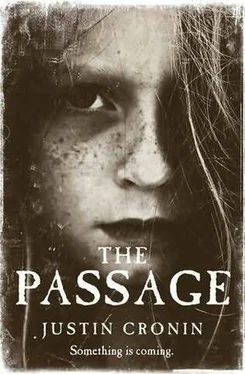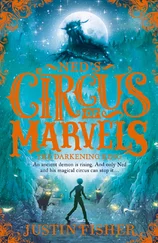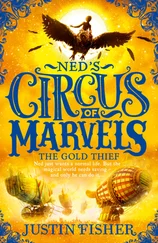“My leg feels better already,” Wolgast said.
He was thirty-five, Lila thirty-one, when they married. A day in September: the ceremony was held on Cape Cod, at a small yacht club overlooking a tranquil bay of bobbing sailboats beneath a sky of crisp, autumnal blue. Nearly everybody who came was from Lila’s side of the family, which was huge, like some enormous tribe-so many aunts and uncles and cousins that Wolgast couldn’t keep count, couldn’t hope to keep everyone’s name straight. Half the women in attendance seemed to have been Lila’s roommates at one time or another, eager to tell him tales about various youthful escapades that seemed, in the end, to be all the same story. Wolgast had never been so happy. He drank too much champagne and stood on a chair to give a long, maudlin toast, utterly sincere, that ended with his singing, wincingly off-key, a verse from “Embraceable You.” Everyone laughed and applauded before sending them off under a corny torrent of rice. If anybody knew that Lila was four months pregnant, they didn’t say a word to him about it. Wolgast chalked this up to New England reserve, but then he realized that no one cared; everyone was honestly happy for them.
With Lila’s money-her income made his own look laughable-they bought a house in Cherry Creek, an older neighborhood with trees and parks and good schools, and waited for the baby to come. They knew she would be a girl. Eva had been the name of Lila’s grandmother, a fiery character who, according to family lore, had both sailed on the Andrea Doria and dated a nephew of Al Capone’s. Wolgast simply liked the name, and in any event, once Lila suggested it, it stuck. The plan was for Lila to work until her due date; after Eva was born, Wolgast would stay home with her for a year, and then Lila would go down to half-time at the hospital when he returned to the Bureau. A crazy plan, full of potential problems they both foresaw but didn’t dwell on. Somehow, they would make things work.
In her thirty-fourth week, Lila’s blood pressure went up, and her obstetrician put her on bed rest. Lila told Wolgast not to worry-it wasn’t so high that the baby was in any danger. She was a doctor, after all; if there was a real problem, she’d tell him. He worried that she’d worked too hard, spent too many hours on her feet at the hospital, and he was glad to have her home, lying about like a queen, calling down the stairs for her meals and movies and things to read.
Then one night, three weeks before her due date, he came home and found her sobbing, sitting on the edge of the bed as she held her head in agony.
“Something’s wrong,” she said.
At the hospital, they told Wolgast her blood pressure was 160 over 95, a condition known as preeclampsia. That was the source of the headache. They were concerned about seizures, about Lila’s kidneys, about harm to the baby. Everyone was very serious, especially Lila, whose face was gray with worry. They would have to induce, her doctor told him. A vaginal delivery was best in cases like this, but if she didn’t deliver in six hours, they would have to do a section.
They hooked her up to a Pitocin drip and a second IV, of magnesium sulfate, to suppress seizures. By this time it was after midnight. The magnesium, the nurse said, with infuriating cheerfulness, would be uncomfortable. Uncomfortable how? Wolgast asked. Well, the nurse said, it was hard to explain, but she wouldn’t like it. They hooked her up to a fetal monitor, and after that they waited.
It was awful. Lila, on the bed, moaned in pain. The sound was like nothing Wolgast had ever experienced; it rocked him to the core. It felt like tiny fires, Lila said, all over. Like her own body hated her. She had never felt so terrible. Whether this was the magnesium or the Pitocin, Wolgast didn’t know, and nobody would answer his questions. The contractions began, hard and close, but the OB said she wasn’t dilated enough, not even close. Two centimeters, tops. How long could this go on? They had been to the classes, done everything right. No one had said it would be like this, like watching a car crash in slow motion.
Finally, just before dawn, Lila said she had to push. Had to. Nobody believed she was ready but the doctor checked her and found, miraculously, that she was at ten centimeters. Everybody began running around, rearranging the room with all its wheeled objects, snapping on fresh gloves, folding away a section of the bed below Lila’s pelvis. Wolgast felt useless, a rudderless ship at sea. He took Lila’s hand as she pushed, once, twice, three times. Then it was over.
Somebody held out a pair of angled scissors, for Wolgast to cut the cord. The nurse put Eva in a warmer and did her Apgars. Then she put a hat on the baby’s tiny head and wrapped her in a blanket and handed her to Wolgast. How astonishing! Suddenly it was all behind them, all the pain and panic and worry, and here was this sparkling new being in the room. Nothing in his life had prepared him for this, the feel of a baby, his daughter, in his arms. Eva was small, just five pounds. Her skin was warm and pink-the pink of sun-ripened peaches-and, as he pressed his face close to hers, gave off a smoky smell, as if she’d been plucked from a fire. They were sewing Lila up; she was still groggy from the drugs. Wolgast was surprised to find there was blood on the floor, a wide dark slick below her; in all the confusion, he had never seen this happen. But Lila was fine, the doctor said. Wolgast showed her their baby and then held Eva a long, long time, saying her name over and over, before they took her to the nursery.
***
Amy grew stronger by the day, but her sensitivity to light did not abate. Wolgast found, in one of the outbuildings, stacks of plywood and a ladder, and a hammer and saw and nails. He had to measure and cut the boards by hand, then carry them up the ladder and hold them in place while he nailed, to seal the windows of the second floor. But after the long climb at the compound-a feat that, in hindsight, seemed completely incredible-this small, ordinary chore seemed like not so much.
Amy rested most of each day, awakening at dusk to eat. She asked him about where they were-Oregon, he explained, in the mountains, a place where he had gone to camp as a boy-but never why; she either knew already or didn’t care. The lodge’s propane tank was nearly full. He cooked small, easy meals on the stove, soups and stews from cans, crackers and cereal wetted with powdered milk. The camp’s water supply was faintly sulfurous but otherwise drinkable, and poured from the kitchen pump so icy cold it made his fillings tingle. He could see right away he hadn’t brought nearly enough food; he’d have to go down the mountain soon. In the basement he’d found boxes of old books-classic novels in a bound set, moldy with age and dampness-and at night under the glow of candlelight he read to her: Treasure Island, Oliver Twist, 20,000 Leagues Under the Sea .
Sometimes she would come out during the day, if it was cloudy, and watch him do the chores-cutting wood, fixing a hole in the roof under the eaves, trying to make heads or tails of an old gasoline generator he’d found in one of the sheds. Amy would sit on a tree stump in the shade, wearing her glasses and cap, with a long towel tucked under the headband to cover her neck. But these visits never lasted long; an hour, and her skin would turn a ferocious pink, as if scalded by hot water, and he’d send her back upstairs again.
One evening, after they had been at the camp for nearly three weeks, he took her down the path to the lake to bathe. Apart from her brief hours outside watching him work, she hadn’t ventured from the lodge, and never so far. At the base of the path was a rickety dock, extending thirty feet past the grassy shoreline. Wolgast stripped to his underclothes and told Amy to do the same. He’d brought towels, shampoo, a bar of soap.
Читать дальше












